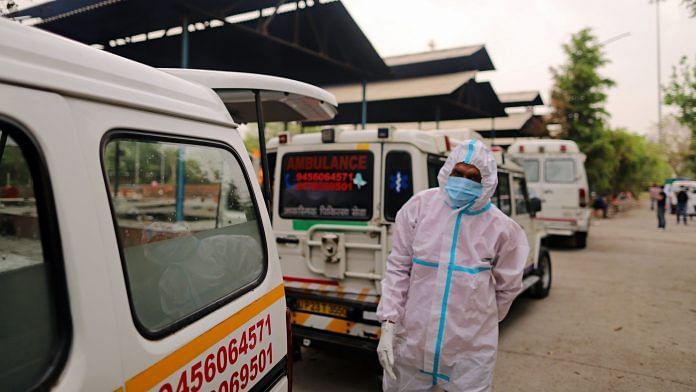New Delhi: The Supreme Court Wednesday directed the National Disaster Management Authority (NDMA) to recommend guidelines for ex gratia assistance to families of those who succumbed to Covid-19.
Constituted under the Disaster Management Act (DMA), 2005, the NDMA is the apex authority on disaster management in the country. The prime minister serves as the chairperson of the authority and is authorised to nominate members to it, not exceeding nine, to lay out policies to manage natural disasters.
However, a bench of Justice Ashok Bhushan and Justice M.R. Shah issued a writ of mandamus (a legal command to fulfill an administrative action) to the NDMA, observing that it had “failed to perform its statutory duty” to recommend appropriate guidelines for minimum standards of relief to those affected by a disaster or a pandemic.
Such guidelines, the court added, were mandatory under Section 12 of the DMA — a law “enacted for prevention and mitigation effects of disasters and for undertaking a holistic, coordinated and prompt response to any disaster situation”.
According to Section 12, the NDMA is required to recommend measures for relief to be provided to those affected by a disaster, one of which includes recommending ex gratia assistance in case of loss of life, damage to houses and for restoration of means of livelihood.
The court order came on two separate petitions filed by advocates Gaurav Bansal and Reepak Kansal who demanded Rs 4 lakh to be paid to each family who lost a member to Covid.
According to central government’s data, submitted before the top court, 3.85 lakh people have died due to the virus so far.
The court, however, left it to the “wisdom of the National Authority” to decide the “reasonable amount” to be offered under this head.
The authority, it added, may determine the amount by considering the availability of funds under the National Disaster Relief Fund or the State Disaster Relief Fund for other reliefs, the priorities determined by the NDMA or central government and the funds required to carry out other obligations under DMA.
The exercise to lay down the appropriate guidelines should be done within a period of six weeks from today, the court said.
The SC bench also directed the central government to issue guidelines directing hospitals to mention Covid as the cause of death even if someone dies due to complications arising from the infection.
It said the guidelines could also provide the remedy to the family members if they are not satisfied with the cause of death mentioned in the death certificate or any official document prepared by the authority.
Also read: Maharashtra will start home vaccination for those bedridden on trial basis, govt tells HC
Mandatory for NDMA to constitute guidelines: SC
In their submission before the court, the petitioners contended that Covid-19 is a notified disaster and therefore, according to a 2015 communication by the home ministry, the family of a person who dies due to such a disaster should receive Rs 4 lakh as ex gratia assistance.
The petitioners said the same criteria should be adopted to compensate those who lost their family members to Covid.
The petitioners emphasised on the use of the word “shall”, which occurs twice in the law, to argue that it was the government’s constitutional and statutory obligation to compensate the families.
In response, the Centre contended that instead of giving ex gratia payment of Rs 4 lakh, the government has taken a conscious decision to use the funds to create infrastructure, hospitals, testing, vaccination, ICU facilities and for other allied matters including providing food to the poor and migrant labourers.
However, considering the objective of the act and the fact that the word “shall” is used twice in Section 12, the court said it is mandatory for the NDMA to enumerate guidelines for providing financial relief.
“The intent of the legislature by using the word ‘shall’ twice is very clear and the same can be in tune with the Statement of Objects and Reasons for enactment of DMA 2005 and the functions and powers of the National Authority. One of the Objects and Purposes is ‘mitigation’,” observed the court.
To construe the word “shall” as “may” and as directory or discretionary instead of mandatory will defeat the very object and purpose of the Act, added the court as it refused to accept the government’s interpretation of the law.
With regard to the quantum, the court said it was not for a judicial forum to decide the amount since ex gratia assistance will have financial implications and could also affect other relief programmes.
“Therefore, the Courts would be very slow to interfere with priorities fixed by the government in providing reliefs, unless it is patently arbitrary and/or not in the larger public interest at all. The Government should be free to take policy decisions/decide priorities, of course to achieve the ultimate goal of DMA 2005,” it said.
Also read: Slow vaccination, Kumbh ‘failure’, poor health infra: Why Uttarakhand HC stayed Char Dham Yatra



